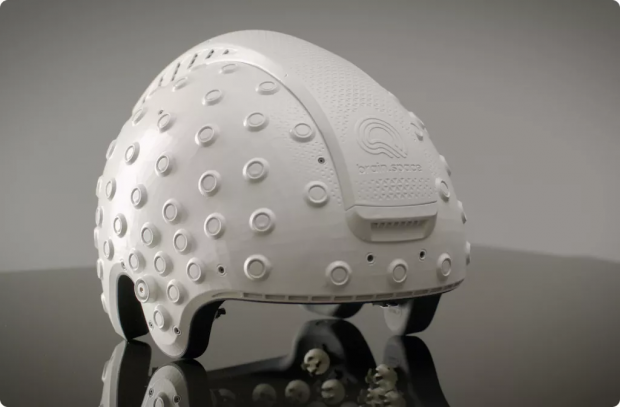
Breaking News
 "A.G.E.S. Fall Conference" on BrightU: How to spot "imposter" farmers and hidden
"A.G.E.S. Fall Conference" on BrightU: How to spot "imposter" farmers and hidden
 Endless Hot Water is the Smartest Spring Upgrade for Your RV
Endless Hot Water is the Smartest Spring Upgrade for Your RV
 Epstein's Friend Howard Lutnik EXPOSED
Epstein's Friend Howard Lutnik EXPOSED
Top Tech News
 New Spray-on Powder Instantly Seals Life-Threatening Wounds in Battle or During Disasters
New Spray-on Powder Instantly Seals Life-Threatening Wounds in Battle or During Disasters
 AI-enhanced stethoscope excels at listening to our hearts
AI-enhanced stethoscope excels at listening to our hearts
 Flame-treated sunscreen keeps the zinc but cuts the smeary white look
Flame-treated sunscreen keeps the zinc but cuts the smeary white look
 Display hub adds three more screens powered through single USB port
Display hub adds three more screens powered through single USB port
 We Finally Know How Fast The Tesla Semi Will Charge: Very, Very Fast
We Finally Know How Fast The Tesla Semi Will Charge: Very, Very Fast
 Drone-launching underwater drone hitches a ride on ship and sub hulls
Drone-launching underwater drone hitches a ride on ship and sub hulls
 Humanoid Robots Get "Brains" As Dual-Use Fears Mount
Humanoid Robots Get "Brains" As Dual-Use Fears Mount
 SpaceX Authorized to Increase High Speed Internet Download Speeds 5X Through 2026
SpaceX Authorized to Increase High Speed Internet Download Speeds 5X Through 2026
 Space AI is the Key to the Technological Singularity
Space AI is the Key to the Technological Singularity
 Velocitor X-1 eVTOL could be beating the traffic in just a year
Velocitor X-1 eVTOL could be beating the traffic in just a year
This Israeli startup's sci-fi 'headset' will map brain changes in space on private Ax-1

If all goes to plan, the brain experiment, which comes from Israel-based startup Brain.Space, will launch aboard a SpaceX Crew Dragon vehicle on April 6 along with the four private astronauts the Ax-1 mission. The crew, whose flight was booked by Axiom Space, will embark on a 10-day excursion which will include eight days of living and working aboard the International Space Station.
The headset and associated hardware will be tested aboard the ISS, Brain.Space said on their website. The experiment will also return to Earth with the Ax-1 crew.
The company says that their examination of the brain will be unique, as, according to them, to-date, "there is currently no high-quality longitudinal data regarding the neural changes in prolonged space missions," their website states.
By obtaining and studying this information, the company aims to gain more insight into how the brain adapts in space, which is an environment full of challenges like radiation, microgravity and isolation. Learning about the "day-to-day plastic changes" of the brain, the company states on its website. The company terms that these adaptations, could help future spaceflyers get more comfortable in orbit.

 One Minute to Midnight
One Minute to Midnight


